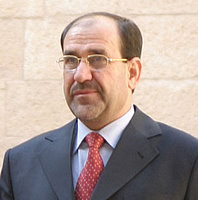On Nov. 12, Secretary of State Hillary Clinton welcomed the formation of a new coalition government in Baghdad, calling it "a milestone in the emergence of the new Iraq and . . . a testament to the determination of the Iraqi people to build their own democracy . . . " President Barack Obama offered a similar greeting from Seoul, where he was attending the G-20 economic summit.
The new Iraqi government, should it hold, will be welcomed throughout the country as well as by its foreign partners. Its members' immediate challenge will be to finalize the details of their new power-sharing agreement and ensure that the government's new structures operate effectively. Among its other tasks, it must resolve certain ambiguities resulting from the 2005 national constitution and the existing national legislation governing elections, which are inadequate for ensuring decisive polls. Furthermore, the coalition government must ensure a broad and effective role for the new National Council on Strategic Policies, a steering group designed to oversee and integrate Iraq's foreign, defense, and other strategic policies. Over the longer term, the government faces the challenge of overcoming Iraq's sectarian divisions, which have deteriorated as a result of the eight months of protracted political infighting that followed March's elections.
Prime Minister Nouri al-Maliki successfully exploited the advantages of incumbency to remain in office, despite the close second-place showing of his primarily Shiite State of Law coalition last March. Maliki's bloc finished behind the Iraqiya coalition led by former Prime Minister Ayad Allawi, who secured the support of much of the Sunni minority as well of Iraq's Shiite majority. Nonetheless, in principle, one hopeful feature of the new Iraq government, termed a "national partnership," is its broad inclusiveness, which should help reassure potentially alienated groups. As Clinton noted in her welcoming message, "This agreement ensures meaningful representation for the election winners, encompassing all of Iraq's ethnic and sectarian communities. It also includes critical provisions for power-sharing and other reforms, including revisions to the de-Baathification process."

